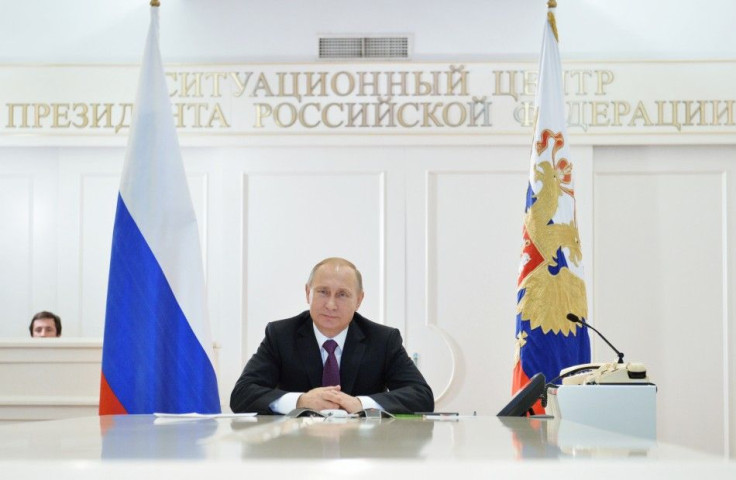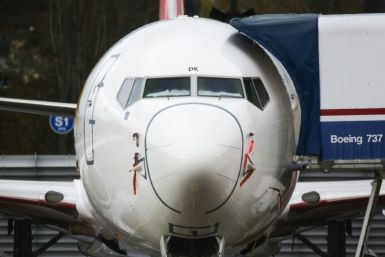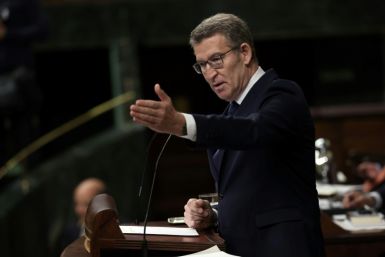NATO, West Is The Biggest Threat Of Our Existence, Says Russia; Ready to Use Precision Weapons Versus US, Allies

Just days after Ukraine re-signified strong intentions to join NATO, Russian President Vladimir Putin warned to cut whatever remaining ties, saying the Atlantic military alliance is the biggest threat to its existence. Suffice to say, Mr Putin hinted he will not back down in using conventional weapons, if needed, to thwart attempts of foreign aggression versus Russia.
In a 29-page document that he signed on Friday, Russia's been given the authority to use precision weapons "as part of strategic deterrent measures." The document was an updated version of the 2010 document, which said that Russia could employ nuclear weapons in the event a country and its allies hurls the same against it. The latest document did not detail how and when Russia will get to use the precision weapons, which could include ground-to-ground missiles, air- and submarine-launched cruise missiles, guided bombs and artillery shells, among others.
"A build-up of NATO military potential and its empowerment with global functions implemented is in violation of international law, as well as the expansion of NATO's military infrastructure to the Russian borders," the document said. It added the deployment and installation of foreign military forces on the territory of Russia's neighbours could be used for "political and military pressure."
Mr Putin said NATO is using Ukraine into a "frontline of confrontation." On Tuesday, Ukraine renounced its neutral status, effectively sending signals of strong intentions to join NATO, further fuelling Russia's anger. NATO has already boosted its military presence in eastern Europe after Russia annexed Ukraine's Crimea peninsula in March.
Observers believed Moscow modified the document in response to the U.S.' Prompt Global Strike program, which enables it to launch deadly precision weapons to just about any target in the world in as little as an hour. But Alexander Konovalov, a Moscow-based independent military expert, believed Moscow could be already building new weapons when it mentioned using precision conventional weapons as a "strategic deterrent."
"It may mean the development of weapons systems, which would make it impossible for NATO to plan a surprise first strike, because it would draw a powerful retaliation," he told AP. "It would allow (Russia) to enforce its will on the enemy without using nuclear warheads."
Mr Putin also maintained in the document that Russia's interests in the Arctic must be strongly protected. Competition for the region's massive natural resources have also been escalating as the Arctic ice continues to melt due to global warming. The region is bounded by Canada, Denmark, Finland, Iceland, Norway, Russia, Sweden, and the U.S. It holds 30 percent of the world's undiscovered natural gas, 20 percent its liquefied natural gas, along with 15 percent of oil, according to the U.S. Geological Survey.
Ukraine's intentions to join NATO, however, is dependent if it meets the latter's criteria. "Should Ukraine decide to apply for NATO membership, NATO will assess its readiness to join the Alliance in the same way as with any candidate. This is an issue between NATO and the individual countries aspiring to membership," Reuters quoted an unidentified NATO official on Friday.






